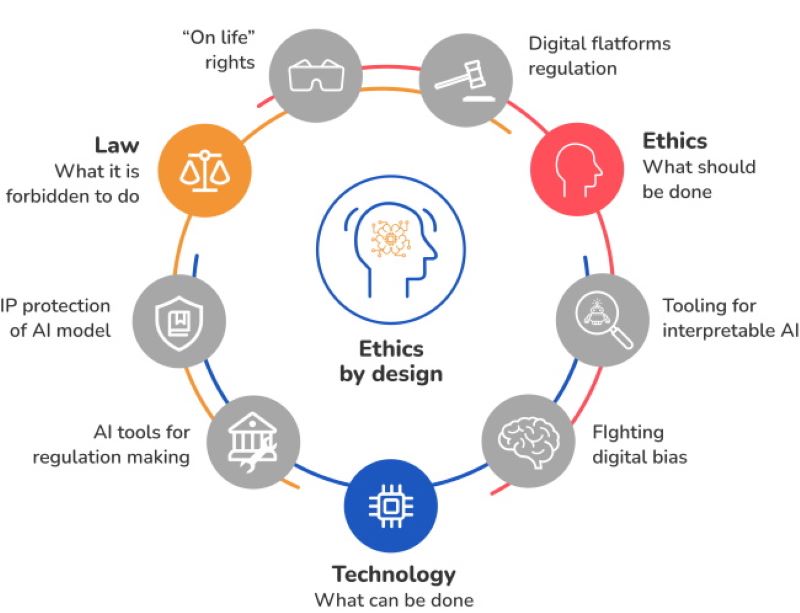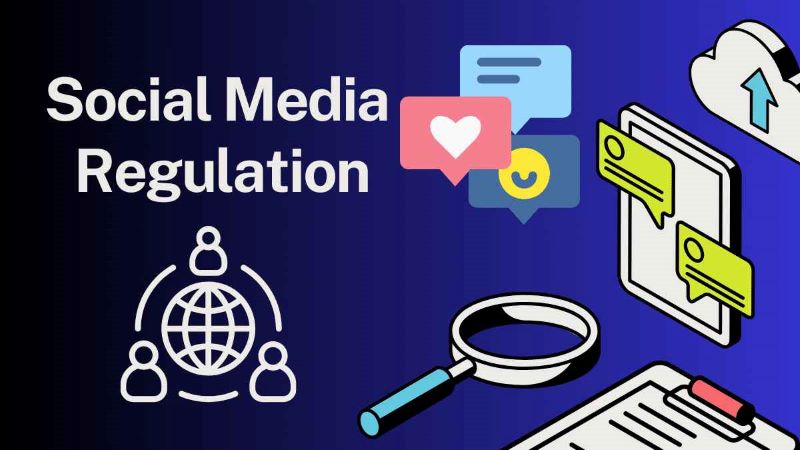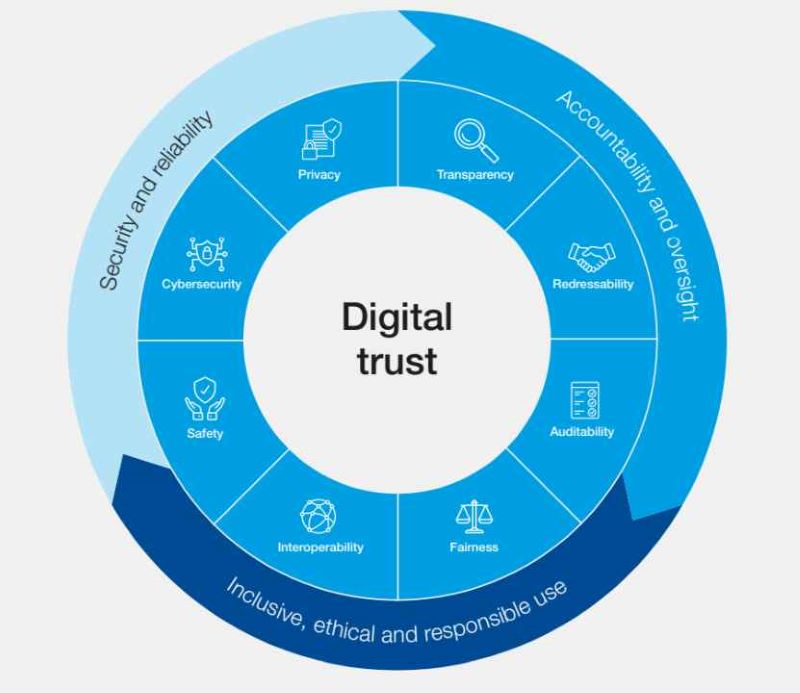How will regulation impact digital platforms? That’s the big question as we peer into the ever-evolving world of tech. It seems like every click and scroll are captured, analyzed, and sold. But change is looming! With new rules knocking at the doors of Silicon Valley, what’s in store for innovation? Let’s talk about keeping the market fair without stifling the tech that makes our world go round. Regulations could be a game-changer for creating trust while keeping the digital engines roaring. Buckle up, as we dive deep into the future shaped by the tussle between control and freedom.
The Balancing Act: Regulation Impact on Innovation and Market Competition
Navigating Antitrust Policies and Tech Companies
Laws that check the power of tech giants are key. Such antitrust policies ensure that no single company can control a market without challenge. It means these companies can’t harm competition or consumer choice. This is big for us, the users.
How does this change the game for tech companies?
Well, with antitrust rules, big players can’t bully the small ones. It’s fair play for all. More choices for gadgets and apps pop up. Good for beginners with bright ideas. Good for us wanting more options.
But there’s a fine line. Regulators have to be sure not to squelch innovation. If rules are too strict, new tech might struggle to get off the ground. We need fresh ideas to flow, but we also need to keep the tech playground fair.
Fostering Fair Competition in the Digital Market
What’s fair competition online?
It’s about making sure no one player has all the power. When fair play rules, it’s a win for all. Small businesses can stand tall next to big tech.
The Digital Market Act points this out. It targets digital monopolies, making sure they don’t block others from the digital market. It asks big-name stores to play nice with smaller apps.
This way, more voices get heard. It’s not just the loudest in the room.
It’s also about what we see and buy online. Fair ad rules stop a few from deciding what’s in or out. They help protect our data too. Online, our privacy should not be up for sale.
Rules like GDPR keep our info safe. No more worries about who sees what we do or like. It backs our right to privacy and gives us power over our own data.
For startups, these fair play rules mean they can dream big too. They don’t have to fear being shut out from the big scene. Newcomers can shake things up, and that’s good for everyone’s future.
So, while some might say more rules means less fun, think about this—fair rules can make the digital world a place where anyone can win. That’s something to cheer for, don’t you think?
Privacy vs. Progress: How New Laws Influence Consumer Data Usage
Embracing GDPR Compliance and Data Protection Laws
We live in a world where our clicks, likes, and shares are valuable. They tell stories about who we are. Big companies use this data to show us ads or new things to buy. But who keeps our data safe? In Europe, they made a law called GDPR. GDPR stands for General Data Protection Regulation. It helps protect our data. It makes sure companies treat our personal information nicely.
GDPR compliance means companies must be careful with our data. They can’t take it without asking us. If they do, they get in big trouble. Troubles like having to pay lots of money. So, companies must listen to GDPR rules. They must keep our information safe and tell us what they do with it. It’s good for us because it keeps our secrets safe online. It also makes sure we know what’s happening with our data.
But, some people worry. They think laws like GDPR might make it hard for new ideas to grow. Let’s think about small businesses. They may find these rules tough. They must spend time and money making sure they follow the laws. For tech giants, it’s easier. They already have lots of money to handle these rules.
Consumer Privacy Online: Ensuring User Trust and Security
Imagine you’re online, searching, chatting, and having fun. How would you feel if someone you didn’t know was watching every move? Scary, right? That’s why we need to keep privacy online strong. Trust and security are big deals.
When we go online, we should feel safe. Like no sneaky eyes are watching us. Protecting consumer privacy online means we can trust the websites we visit. We can feel sure that our personal stuff won’t get stolen.
Companies must follow privacy laws. These laws help stop them from being nosy and getting our data without us saying it’s okay. This is what “online platforms regulation” is all about. It’s like having a guard that says, “Hey, ask before you take!”
Government oversight of social media means governments watch how these sites use our data. They check to see if social media companies play by the rules. If they don’t, they might have to pay money or even change how they do things. This keeps our personal chats and photos safe from people we don’t want seeing them.
By keeping an eye on these companies, we make sure they don’t misuse our information. That way, we can keep enjoying the online world without worry. It’s a big job, but it’s worth it to keep us all safe and sound. It’s like having a superhero for our private lives!
Laws and rules can be tough to follow. But they’re there for a good reason – to keep us safe. Privacy is super important. It’s all about finding the best way to balance safety with all the cool things we can do online. It’s like crossing a bridge made of rules, making sure we can safely get to the fun on the other side.
Adapting to Change: Compliance and Cybersecurity in the Digital Realm
Compliance Costs for Digital Platforms
New rules are making tech giants think hard and spend more. They need lawyers, coders, and more to keep up with laws. These changes can be tough, especially for smaller sites. Yet, they help make sure everyone plays fair. Big sites like Facebook have to watch their steps now. They can’t just do things without thinking of the new rules.
Government oversight of social media is on the rise. Sites must now think twice before letting any post go live. They need to stop bad stuff, like fake news, but not block good stuff. It’s like a big digital dance, getting the steps right to a brand new song. Sometimes they slip, and new rules are there to catch them.
Strengthening Platforms through Cybersecurity Regulations
Hackers are like digital ninjas, always trying to sneak into pages and steal secrets. But new rules are making platforms put up stronger walls and better locks. This means our private chats and photos stay safe from prying eyes. With every new cybersecurity rule, the internet gets a bit safer for us all.
Platforms have to prove they can block bad guys from getting in. It’s like a digital fortress, and only the good guys should hold the keys. By doing this, we trust them more. We feel safe sharing and shopping online.
These changes mean a lot for us and for platforms too. They keep our digital world clean and safe. So, while laws might seem tough, they’re really here to help us all. Think of these rules as seatbelts in the car. They’re there to keep us safe, even if they take a bit to buckle up.
International Alignments and the Future of Digital Policy
Global Tech Policy Developments and International Internet Laws
Laws change and tech giants must pay heed. Think of it like a global game. Everyone plays by the rules—or should, at least. Governments worldwide are realigning, redefining what’s fair in tech. The European Union, the United States, and others—are shaking hands on how to manage tech power.
What does this mean for you and me? A lot. Safer data, clearer choices, and knowing that no single company can unfairly rule the online space. This push for global tech policy means that the digital world we dive into each day could become a better, more fair place.
The neat part? It’s a big win for our private details—our data. As rules tighten, big tech companies must treat our information with care. They’ll need to ask us before they take it and tell us how they’ll use it. That’s a big step toward keeping our lives under our control and not just in a data bank somewhere.
The Role of European Union Digital Rules in Shaping Worldwide Standards
Now let’s zoom in on Europe. Did you know that what happens there can affect apps and sites worldwide? The European Union doesn’t play when it comes to digital policies. Their rules, like the General Data Protection Regulation (GDPR) and the Digital Markets Act, set high standards.
These laws mean business. They’re making sure that even the biggest names in tech play nice. Sharing markets, not hoarding data—it’s about competition being fair. And here’s a cool point—these European rules often become a model for the whole world. They’re like trendsetters in the schoolyard that everyone watches and copies.
Now, suppose a new app store tries to make it big. It’s got fresh ideas, but it’s small. Thanks to European Union digital rules, it can get a fair chance to grow and shine. Even tech giants have to share their toys—that’s platform neutrality at work.
This shift, folks, is huge. It’s all about balance—keeping the booming digital space wide open for ideas and business while making sure the big players don’t box out the newcomers. No one country can do this alone; it has to be a team effort. That’s why those international internet laws matter so much.
In short, the future looks promising because of these changes. As these global tech policies bloom, we could be looking at a living room with open, sunlit windows instead of a locked, dark cellar. And let’s face it, we could all use a bit more sunshine in our digital lives.
In this post, we looked at how rules affect tech and the market. We covered antitrust policies and how we can keep the digital market fair for all. We also talked about privacy laws like GDPR that help to protect your data online. We need to trust the sites we use, and these laws make that possible.
But these rules can make things costly for digital companies too. Still, strong rules on cybersecurity can keep these platforms safe for everyone. Plus, with new tech laws from around the world, especially in the EU, we might see big changes that set the standard for everyone.
Here’s my final take: Rules are important, and they need to be just right. Too many rules can slow down new ideas, but just enough can keep us safe and keep the playing field even. We have to keep watching and adjusting so that everyone wins. Thanks for reading!
Q&A :
How is regulation likely to affect the operation of digital platforms?
Regulatory measures, when applied to digital platforms, can bring significant changes. From how user data is handled to the way content is moderated, regulations can lead to improved transparency and fairer competition among businesses. However, they may also impose stricter compliance requirements and potentially limit the scope of operations and innovations that these platforms might otherwise undertake.
What kinds of regulations could digital platforms be facing in the future?
Digital platforms may face a variety of new regulations, including those related to privacy, data protection, antitrust laws, and content moderation. Upcoming regulations may aim to address issues like the spread of misinformation, consumer data rights, market dominance by a few large players, and the ethical use of artificial intelligence and algorithms.
How can digital platforms prepare for increased regulation?
Platforms can prepare for increased regulation by conducting comprehensive audits of their data management, privacy policies, and content moderation systems. They should also stay informed about legislative changes, invest in compliance infrastructure, and engage in dialogue with regulators. Proactively adopting higher standards for transparency and ethical practices can also cushion the impact of future regulations.
Will regulation hinder innovation on digital platforms?
Regulation and innovation can coexist, though some argue that stringent regulations might slow down the pace of innovation by placing additional constraints on digital platforms. The key to minimizing this impact lies in how regulations are crafted—balancing the protection of consumers and societies with the need to foster an environment where new and beneficial technologies can emerge.
What are the potential benefits of regulating digital platforms?
Regulation can lead to a safer and more responsible digital environment. By establishing clear rules, it can protect consumer rights, promote fair competition, prevent monopoly power, and ensure that platforms are held accountable for harmful content. Furthermore, regulations may build user trust in digital services, leading to wider adoption and support for sustainable business practices.






